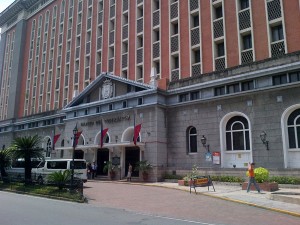MANILA, Philippines – Expect to be “bombarded” with political advertisements once the campaign season for the 2016 elections begins, the Commission on Elections (Comelec) said after the Supreme Court (SC) declared as unconstitutional the Comelec’s rule on air time limit for candidates.
“With this new decision, the SC effectively obliterated a statutory mechanism to level the playing field by setting a cap on the quantity of media exposure candidates can buy,” Comelec Chairman Sixto Brillantes Jr. said in a statement Wednesday.
“Consequently, the public should be prepared to be bombarded by television political advertisements come the 2016 National and Local elections,” he said.
With a vote of 14-0, the SC ruled as unconstitutional Comelec resolution 9615 which only allows national candidates a total of 120 minutes of television advertisements and 180 minutes of radio commercials regardless of station/network.
Previously, candidates were allowed the same amount of time but on a per station basis.
“Among the reasons relied upon by the Court in striking down Section 9(a) were: (a) the arbitrary manner by which Comelec changed the previous regulation from “per station” to “aggregate total”, (b) the violation of freedom of expression, speech and of the press; (c) the violation of the people’s right to suffrage; (d) the absence of prior hearing before adoption,” SC spokesperson Theodore Te told media about the decision.
Brillantes said that he was disappointed with the SC’s decision and that he will not recommend filing a motion for reconsideration.
“Considering, the unanimity of the members of the SC, I am personally inclined to recommend to the Commission En Banc to no longer file a motion for reconsideration on the said ruling,” Brillantes said.
“To counter this laxity, the Comelec vows to impose stricter campaign finance regulations- particularly on expense monitoring and documentary requirements-for the upcoming 2016 elections. We will likewise modify our existing rules regarding airtime policy to be consistent with the new ruling,” he said.
This was not the first time that the SC ruled against Comelec. Comelec’s “money ban,” “expanded liquor ban,” and moves to cleanse the party-list system were all stopped by the SC before election day of the 2013 elections.
The SC’s decisions frustrated Brillantes to the point that he threatened to resign at one time in the run-up to May 13, 2013 elections.
RELATED STORIES
SC strikes down Comelec limits on pols’ election ad airtime
What Went Before: Supreme Court vs. Comelec


